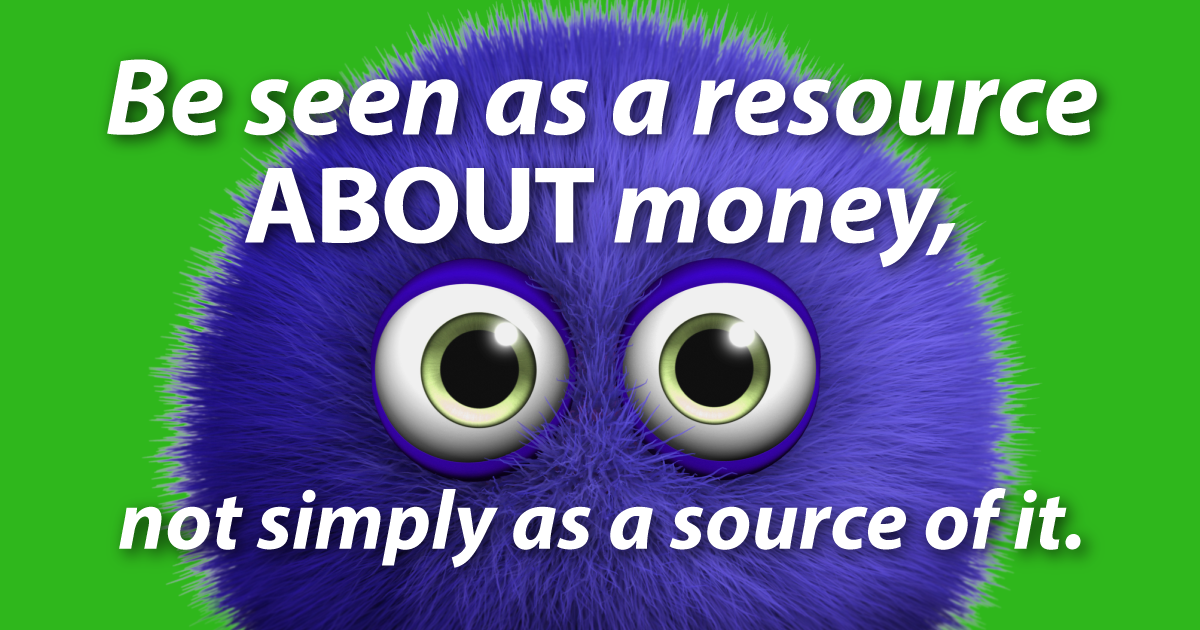
How credit unions can be much more than loan retailers
Lots of people make bad decisions about their money simply because they were never taught how to make good ones.
Which often gets blamed on their parents, since 83% of US adults say that parents are the most responsible for teaching their kids about finances. Yet 40% of parents claim they talk to their kids about money maybe once a month (or less). And another 31% never do.
So if parents aren’t talking to their kids about money, who is?
You would think that schools would be a natural fit. After all, state-mandated financial education classes have proven to produce higher credit scores and fewer delinquencies.
But only eight states require personal finance courses for students. Additionally, only seven more states have started the process of requiring a course. Everywhere else, fewer than 10% of students are required to take a financial education course. And in schools where students of color are the majority, that number drops closer to 5%.
What does that mean in the real world? People with little financial education are five times more likely to be unable to cover one month of living expenses. So until the other 35 states make it a priority, people will continue to have problems dealing with money.
Enter Credit Unions.
Most CU professionals I’ve met will proudly say their credit union cares more about their members’ well-being than making a profit. So why is it that almost all of their marketing promotions are for loans?
Sure, loans make money and keep the lights on. But what they’re missing is a tremendous opportunity for credit unions to demonstrate their purpose.
Instead of branding yourself as a commodity lender, you have the chance to make a connection. To develop a reputation for providing something better. To demonstrate how much you care about your members.
This is your chance to be seen as a resource about money, not simply as a source of it.
But you’re going to have to step up, like these CUs did:
Student Loan Sense Videos
About 12 years ago, Lori Herrick, President/CEO of Manchester Municipal Federal Credit Union, was able to help a student member refinance a terrible deal on their student loans. Since then, MMFCU has continued to develop their student loan program and Lori has been sharing her ideas and vision with other credit unions, in order to help them realize both the market potential and to provide a solution to the student loan crisis.
Lori and iDiz recently teamed up to create a series of Student Loan Sense videos for prospective college students. These videos answer questions about student loans – including where to get them, whether to defer payments, what to do after you graduate, and more. (Plus, they are FREE for ALL credit unions to use in their social media or on their websites! Click through to learn more.)
Reality Fairs
Diamond Lakes FCU has been offering their Financial Reality Fairs to schools for several years now, teaching about budgeting and empowering the participants with the tools, information, and decision making skills necessary to achieve financial freedom. They go on-site to classrooms for small groups,
to gyms and other community spaces for larger groups, or they present virtually by Zoom. So far, almost ten thousand people have gone through DLFCU’s Reality Fairs. That’s impressive!
Student Run Credit Unions
Community Financial’s program has grown to 50 student-run school credit unions in Michigan-area school districts that expose students to money management skills. More than 1,200 student volunteers each year complete job applications, have one-on-one interviews, then serve as branch managers, tellers, accountants, computer operators and marketing representatives at their credit union. In addition to student-run credit unions, the Community Financial team conducts classroom presentations. In both 2020 and 2021, the CFCU team reached 21,540 students despite the pandemic’s impact on education.
(Know of more great examples? Drop us a note and we’ll update this post.)
- It’s hard not to get caught up in a buzz that surrounds you. - April 9, 2024
- Turn your staff into an Idea Factory. - February 27, 2024
- Move with the future or get left behind - February 6, 2024
